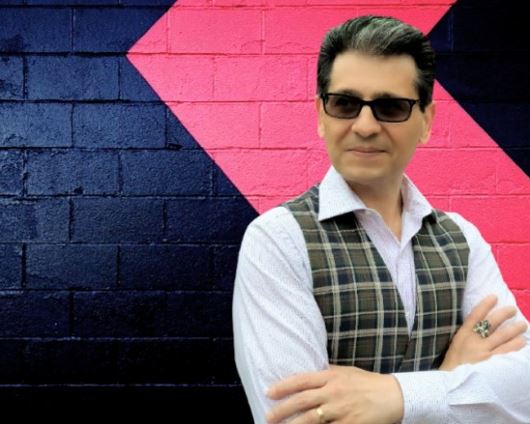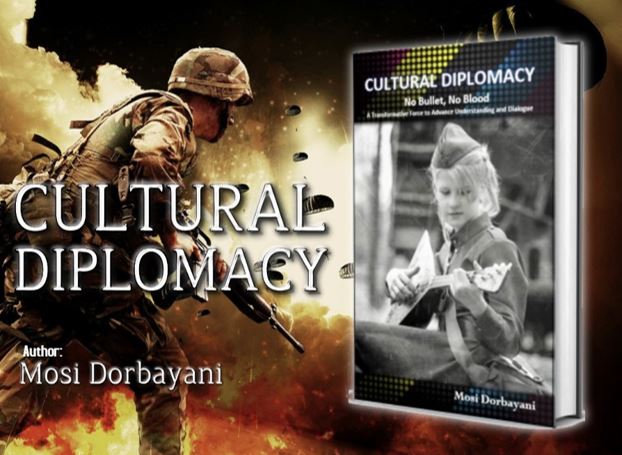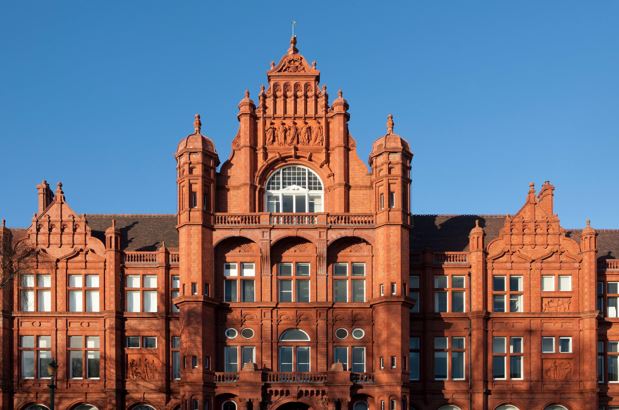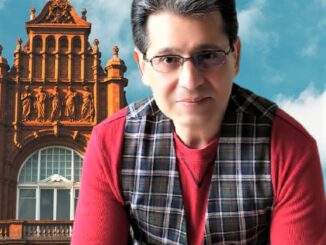In this edition, the spotlight is on Mosi Dorbayani, a noted executive adviser, and an award-winning author and songwriter, based in Vancouver, British Columbia. Forbes addresses him as “The Father of The Coadunate Economic Model”, NBC Network calls him “A Truly Renaissance Man”, and MTV calls him “An Extraordinary Cultural Influencer”.

Welcome to Spotlight Magazine.
MD: It’s a pleasure to be here.
As a cultural magazine, covering many aspects of social policy and arts in Canada and beyond, we believe our readers are interested to learn more about your views on ‘Cultural Diplomacy’. Therefore, without further ado…
How culture can reshape the global policy?
MD: The soft power of culture has the potential to reshape global diplomacy. We all experienced it repeatedly that there is no military solution – dialogue and diplomacy are the only guarantee of long-lasting peace.
To maintain peace, order and stability, while strength and military may be kept reserved, tact and diplomacy would in fact best serve the objectives of world-order. Cultural diplomacy and implementation of its soft penetrating power can create trust between people and amongst nations, provide a positive common ground for cooperation despite of political differences, and can create a platform for individuals and groups to interact so that they pave new opportunities to resume diplomatic relations, where and when they have been constrained or cut.
Speaking of constrained relations, how cultural diplomacy can effectively help managing crisis?
MD: Wise policymakers, smart political leaders, world-class educators, and philosophers all have long realized the power that entails from having a debate or forging dialogue. Creative industry in any given culture has that unique power to softly engage people. One may use the language of music, the other, the power of silver screen; one may engage audience on stage, while the other trigger them through words of a song. Regardless of instrument, the purpose is the same – to server the betterment of humanity, especially during the crisis. Cultural diplomacy, when properly learned and applied, not only has the novel capacity to impact ‘the world public sentiment’, but also the ‘belief system of people, their networks, and their countries’. Ultimately, the main objective of cultural diplomacy is to advance mutual understanding. And through that, we can facilitate tolerance, and as the result reduce tensions to manage crisis.
Do you think governments around the world should back cultural diplomacy?
MD: Well, having governments to back cultural diplomacy is not free from risk. Governments may get tempted to manipulate cultural products and use them for propaganda. The examples can be seen by countries such as United States, France, and China. While we cannot ignore the critical role of governments in supporting arts and culture, the actual practice of cultural diplomacy is better left to those creators of arts. Eventually it is not the politicians or political diplomats in the office who are creating the medium for cultural diplomacy or cultural exchange, but the artists, writers, performers and their entire industry. Those voices, creative minds, contributors and performers are in fact the true savior and real cultural diplomats.
Are we looking at culture differently from our neighbor country, United States?
MD: America sees culture as a set of products to export, whereas here in Canada we mostly see it as part of our identity and a source of pride. Moreover, we usually use culture and creative industry to build up community partnership. According to the latest statistics by Canadian Association for the Performing Arts (CAPACOA, 2017), Canadian creative industry plays a pivotal role across our communities. For example, 86% of our creative entities already work in partnership with other arts organizations, 84% work with a wide variety of community organizations, 78 % are collaborating with schools or educational institutions across the country, 67% are partnering with government, and 64% are working with the private sector. So, I can confidently say our culture is ‘collaborative’ and ‘community oriented’.

In your recent publications, including your award-wining book, ‘Cultural Diplomacy: No Bullet, No Blood’, you emphasized on the role of cultural diplomacy in upholding democracy. Would you elaborate on that?
MD: In my view, culture has a diplomatic role in global governance, and to that respect cultural diplomacy is increasingly playing an important role in promoting liberal and democratic values. It fosters dialogue and democratic participation. It facilitates human development, expansion of education, human rights, freedom of thought and expression. It also assists recognition and understanding of value-oriented causes and missions.
In your opinion, how the concept of cultural diplomacy itself should be promoted?
MD: Strategically through formal education, research, and raising public awareness. ‘Study’ and ‘Practice’ are the key factors to excel at any given subject. While there are a few institutions offering formal education in cultural diplomacy, I see their curriculum is dominated by subjects more related to International Relations – influenced by traditional political theories.

But recently, University of Salford – School of Arts, Media and Creative Technology based in Manchester, UK, similarly took interest in my practice-based research and publications in the field, and it seems to me that Salford is open to play a leading role on promoting cultural diplomacy as an advanced study for social impact. The University of Salford is a public university – an establishment rooted in 1850. Personally, I found its Doctoral School a vibrant and diverse research community, and its researcher developers such as Prof. Dr. Alan Williams an outstanding scholar, who is committed to facilitate success in ‘collaborative’ projects.
Speaking of collaborative projects, you are one of the pioneers of ‘Co-operative Enterprises for Economic Growth’ since early 90s. In your recent interview with New York Times, you mentioned: “What we as a society and entrepreneurs need to do and act upon fast – is to change our mindset, adjust and step into an economy, where its environment is more collaborative.” Would you elaborate on that, and if culture is any part of it?
MD: The typical vertical system of thinking and traditionally going up the ladders perhaps is no longer applicable for all middle and bottom classes. We need to shift our mindset and think ‘horizontally’ instead, and facilitate growth differently. That is sensing the emerging future possibilities, seizing them immediately, and structuring them in form of co-operative enterprises. To establish co-operative enterprises for economic growth, one needs to embrace change, and the key is in our quality of thoughts, it is in our paradigm of thoughts – economic thoughts in particular. We need to change our paradigm of thinking, and shift it horizontally ahead for betterment of humanity. And to achieve that shift, establishing dialogue, and cultural understanding is vital. And to answer the second part of your question, yes, culture plays an important role in economic growth. 114 creative organizations in Canada contributed over $442.5 million in expenditures. The economic impact of the Performing Arts alone, contributed $2.7 billion to the Canadian Gross Domestic Product in the recent years. So, the contribution of arts and culture to our economic growth is significant indeed.
Great, we have to leave it there. It was a pleasure having you on this edition. Thank you for attending this.
MD: Thank you for having me.
Related Links:
Mosi Dorbayani’s Profile: https://www.dorbayani.com/mosidorbayaniprofile
Follow Mosi Dorbayani on Facebook and Instagram:
https://www.facebook.com/mosidorbayani
https://www.instagram.com/MosiDorbayani
Reference: Statistics and Survey of Performing Arts Presenters, www.capacoa.ca





